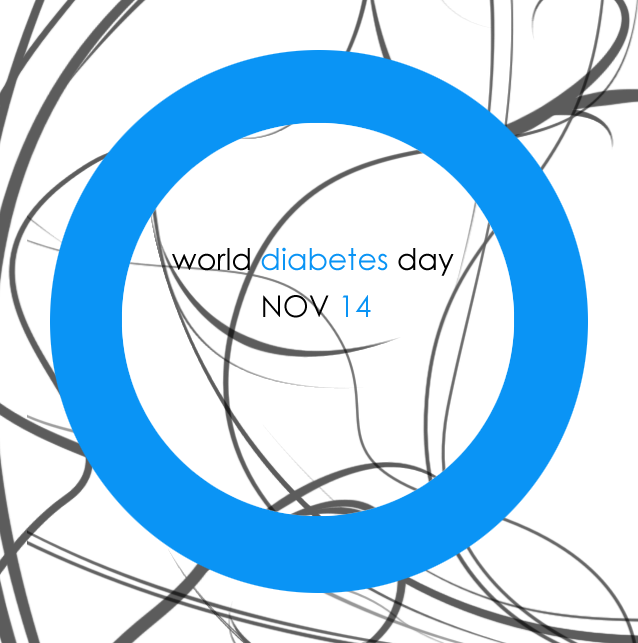 World Diabetes Day raises global awareness of diabetes - its escalating rates around the world and how to prevent the illness in most cases. Started by the International Diabetes Federation (IDF) and WHO, the Day is celebrated on 14 November to mark the birthday of Frederick Banting who, along with Charles Best, was instrumental in the discovery of insulin in 1922, a life-saving treatment for diabetes patients.
World Diabetes Day raises global awareness of diabetes - its escalating rates around the world and how to prevent the illness in most cases. Started by the International Diabetes Federation (IDF) and WHO, the Day is celebrated on 14 November to mark the birthday of Frederick Banting who, along with Charles Best, was instrumental in the discovery of insulin in 1922, a life-saving treatment for diabetes patients.
World Diabetes Day is the primary global awareness campaign of the diabetes mellitus world and is held on November 14 of each year. It was introduced in 1991 by the International Diabetes Federation and the WHO, World Health Organization in response to the alarming rise of diabetes around the world. World Diabetes Day is a campaign that features a new theme chosen by the International Diabetes Federation each year to address issues facing the global diabetes community. While the campaigns last the whole year, the day itself marks the birthday of Frederick Banting who, along with Chrales Best, first conceived the idea which led to the discovery of insultin in 1922.
Each year, World Diabetes Day is centred on a theme related to diabetes. Topics covered have included diabetes and human rights, diabetes and lifestyle, diabetes and obesity, diabetes in the disadvantaged and the vulnerable, and diabetes in children and adolescents.
For 2009–2013, the theme is Diabetes Education and Prevention
WHO estimates that more than 220 million people worldwide have diabetes. This number is likely to more than double by 2030 without intervention. Almost 80% of diabetes deaths occur in low and middle-income countries.Each year, World Diabetes Day is centred on a theme related to diabetes. Topics covered have included diabetes and human rights, diabetes and lifestyle, diabetes and obesity, diabetes in the disadvantaged and the vulnerable, and diabetes in children and adolescents.
For 2009–2013, the theme is Diabetes Education and Prevention
So spread the word about the importance of prevention!
Once identified, people at high risk of diabetes should have their plasma glucose levels measured by a health professional to detect Impaired Fasting Glucose or Impaired Glucose Tolerance, both of which indicate an increased risk of type 2 diabetes. Prevention efforts should target those at risk in order to delay or avoid the onset of type 2 diabetes.
There is substantial evidence that achieving a healthy body weight and moderate physical activity can help prevent the development of type 2 diabetes. In primary prevention there is an important role for the diabetes educator to help people understand the risks and set realistic goals to improve health. IDF recommends a goal of at least 30 minutes of daily exercise, such as brisk walking, swimming, cycling or dancing. Regular walking for at least 30 minutes per day, for example, has been shown to reduce the risk of type 2 diabetes by 35-40%.
World Diabetes Day will promote greater awareness of the risk factors for diabetes and encourage best-practice sharing in diabetes prevention. The campaign will ask diabetes stakeholders to call on UN Member States to follow through on the promise of the UN Resolution on diabetes and develop national policies for the prevention, treatment and care of diabetes in line with the sustainable development of their healthcare systems.
Brought to you from: http://worlddiabetesday.org/
No comments:
Post a Comment